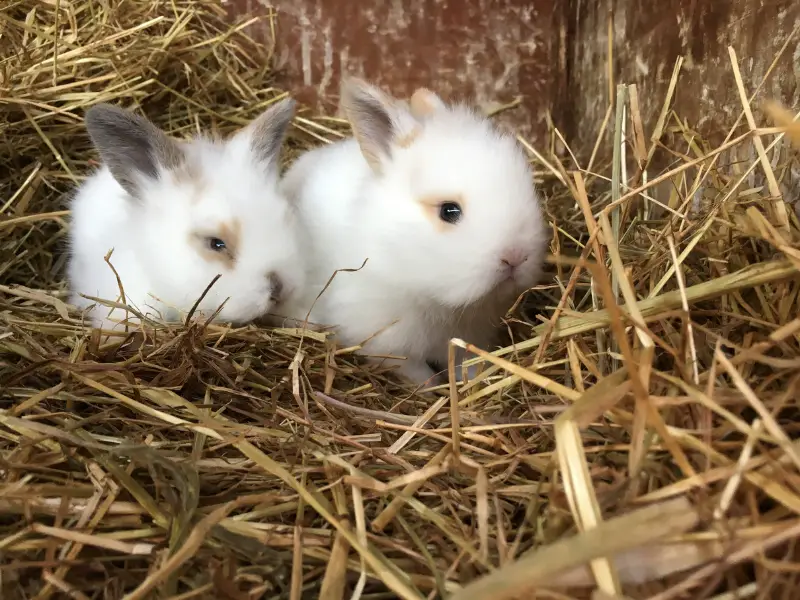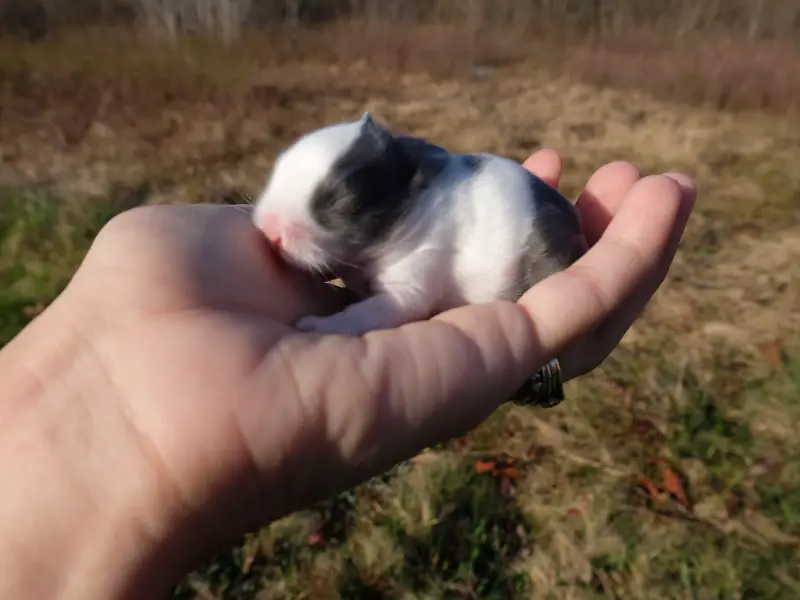Baby rabbits are a popular pet, but unfortunately, they are also known for their high mortality rate. Many owners have experienced the sudden death of their baby rabbits, leaving them confused and heartbroken. There are several reasons why baby rabbits die suddenly, and it is important to understand these factors to prevent further loss.
One of the most common reasons for sudden death in baby rabbits is improper care. Baby rabbits require a specific diet and environment to thrive, and any deviation from this can lead to health problems and death. Additionally, baby rabbits are fragile and can easily become injured or stressed, which can also lead to sudden death.
Another factor that can contribute to the sudden death of baby rabbits is genetic defects. Some baby rabbits may be born with congenital abnormalities that affect their health and lifespan. In these cases, there may be little that can be done to prevent sudden death, but it is important to recognize the signs and symptoms of these conditions to provide the best possible care.
Is it common for baby bunnies to die?
Baby rabbits, also known as kits, are fragile creatures that require special care and attention. Unfortunately, it is not uncommon for baby bunnies to die suddenly, especially in the first few weeks of life.
According to experts, the mortality rate for baby rabbits can be as high as 50% in the wild and up to 75% in captivity. This is due to a variety of factors such as genetics, environment, and nutrition.
One of the main reasons why baby rabbits die suddenly is due to their delicate digestive system. Kits have a very sensitive stomach, and any changes in their diet can cause digestive issues that can be fatal. Additionally, baby rabbits are prone to dehydration, which can also lead to death.
Another common cause of death in baby rabbits is hypothermia. Kits are unable to regulate their body temperature effectively, and if they get too cold, they can quickly succumb to hypothermia.
Finally, predators such as foxes, birds of prey, and snakes pose a significant threat to baby rabbits, especially those in the wild. Even in captivity, rabbits are susceptible to attacks from other animals such as cats and dogs.
In conclusion, while it is not uncommon for baby rabbits to die suddenly, there are steps that can be taken to minimize the risk. Providing a safe and warm environment, a balanced diet and regular veterinary care can all help to ensure the health and well-being of baby bunnies.
The reason why baby rabbits die suddenly

Baby rabbits are fragile creatures and can die suddenly due to various reasons. The following are some of the most common reasons why baby rabbits die suddenly:
1. Lack of Proper Nutrition
Baby rabbits require a specific diet that is high in fiber and low in fat. If they do not receive proper nutrition, they can develop gastrointestinal problems that can quickly become life-threatening. It is essential to provide baby rabbits with hay, fresh vegetables, and a small amount of pellets to ensure they receive the necessary nutrients.
2. Hypothermia
Baby rabbits are unable to regulate their body temperature, and if they become too cold, they can quickly succumb to hypothermia. It is crucial to keep baby rabbits warm and dry, especially during the first few weeks of their life.
3. Overcrowding
Baby rabbits require sufficient space to move around, play, and explore. Overcrowding can lead to stress, which can weaken their immune system and make them susceptible to illness.
4. Predators
Baby rabbits are vulnerable to predators such as cats, dogs, and birds of prey. It is crucial to keep baby rabbits in a safe and secure environment to protect them from potential predators.
5. Genetic Defects
Some baby rabbits are born with genetic defects that can lead to sudden death. These defects can include heart defects, respiratory problems, and neurological disorders.
In conclusion, it is essential to provide baby rabbits with proper nutrition, a warm and dry environment, sufficient space, and protection from predators to ensure their health and well-being.
What is the most common cause of death in rabbits?
Rabbits are fragile animals, and they can die suddenly for various reasons. However, the most common cause of death in rabbits is gastrointestinal stasis. This condition occurs when the digestive system slows down or stops working altogether, leading to a buildup of gas and toxins in the rabbit’s body.
Gastrointestinal stasis can be caused by several factors, including a poor diet, dehydration, stress, and lack of exercise. Rabbits need a high-fiber diet to maintain their digestive health, and a lack of fiber can cause their digestive system to slow down. Dehydration can also lead to gastrointestinal stasis, as it can cause the food in the digestive system to become dry and difficult to move.
Stress is another common cause of gastrointestinal stasis in rabbits. Stress can be caused by various factors, including changes in the rabbit’s environment, loud noises, and handling. Lack of exercise can also contribute to gastrointestinal stasis, as it can lead to a lack of movement in the digestive system.
In addition to gastrointestinal stasis, rabbits can also die suddenly from other health issues, including respiratory infections, dental problems, and parasites. It is essential to monitor your rabbit’s health regularly and seek veterinary care if you notice any changes in their behavior or physical condition.
How do you save a dying baby rabbit?
When a baby rabbit is in distress, it is essential to act quickly to save its life. Here are some steps that can be taken to help a dying baby rabbit:
- Keep the baby rabbit warm: Baby rabbits cannot regulate their body temperature, and if they become too cold, they can quickly die. Place the baby rabbit in a warm, dry location, and cover it with a soft blanket or towel.
- Provide hydration: If the baby rabbit is dehydrated, it may need fluids. Use a syringe or eyedropper to give the rabbit water or an electrolyte solution. Be careful not to force fluids into the rabbit’s mouth, as this can cause aspiration.
- Provide nutrition: If the baby rabbit is not eating, it may need to be fed. A specialized formula for baby rabbits can be purchased at a pet store or veterinarian’s office. Use a syringe or eyedropper to feed the rabbit small amounts of formula every few hours.
- Seek veterinary care: If the baby rabbit’s condition does not improve, it is essential to seek veterinary care immediately. A veterinarian can assess the rabbit’s condition and provide appropriate treatment.
In conclusion, saving a dying baby rabbit requires quick action, warmth, hydration, nutrition, and veterinary care. With proper care, many baby rabbits can recover and go on to live healthy lives.
Conclusion
In conclusion, sudden death in baby rabbits is a common occurrence and can be caused by various factors. It is important for rabbit breeders to provide proper care and nutrition to their rabbits to prevent such deaths. The following factors can contribute to sudden death in baby rabbits:
- Infections: Baby rabbits are susceptible to infections, and it is important to keep their environment clean and free from bacteria and viruses.
- Poor nutrition: A lack of proper nutrition can lead to weakened immune systems and other health problems.
- Overcrowding: Overcrowding can lead to stress and the spread of diseases.
- Genetic defects: Some baby rabbits may be born with genetic defects that can cause sudden death.
Rabbit breeders should monitor their rabbits closely and seek veterinary care if they notice any signs of illness or distress. With proper care and attention, many cases of sudden death in baby rabbits can be prevented.
Related Articles:

